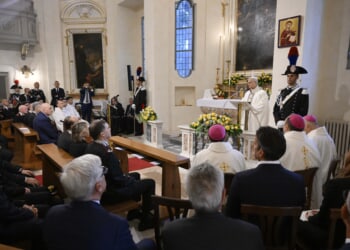Ioan Phillips is a former civil servant who worked as a private secretary to three secretaries of state for transport.
The operation of the British state is underpinned by the mantra that “civil servants advise, ministers decide”. The recent statement by the Transport Secretary placed the blame for the HS2 delays and cost overruns – the fourth “reset” moment in five years – on the latter, skimming over the role of the former.
Yet when one considers this interpretation against the problems experienced by the HS2 project, the notion these were primarily caused by politicians is undermined. After all, it wasn’t politicians who insisted on 250mph trains or a £100m bat tunnel. Recommendations like these will have been carefully developed, in detail, by officialdom.
Taking the Transport Secretary’s statement and the accompanying report by infrastructure expert, James Stewart, together, they identify three specific failings with HS2 the origins of which even the most partisan Labour hack would be hard-pressed to argue were political.
First, regarding cost control, the contracts weren’t negotiated by ministers – something that’s implicitly acknowledged. This speaks to a gap in the state’s commercial management abilities, a long-discussed weakness (although there’s been limited progress in addressing this).
Second, the lack of “capability, skills and trust” referenced suggests wider issues in the relationship between government and arm’s length bodies. Many of these issues stem from operational-level decisions and/or official-level interactions (or lack thereof).
Third, on Euston, it’s not like the legwork on designing the HS2 station was led by ministers. Ministers would have had some top-line input, but the substantive options put to them would’ve been developed by officials first. Interestingly, the Transport Secretary’s statement doesn’t mention the role of the Euston Partnership Board – which was previously chaired by her ministerial colleague – in this “lack of clarity”.
Certainly, it’s convenient for Labour, and perhaps the Civil Service, to suggest that issues with HS2 around costs and delivery were politically-created. (Yet the Cabinet Secretary is, at the Prime Minister’s behest, considering if a probe into officials is necessary.)
But there have been things about HS2 that Conservative politicians got right. The transport secretaries and special advisers I worked for during my stint as a private secretary were nothing but conscientious in grappling with the problems of delivering high-speed rail in a country where red tape is rife.
Network North is a prime example of this. Cancelling the northern leg of HS2 was controversial, though it’s hard to deny that Network North was – whatever one’s view about the cancellation – an intellectually coherent alternative which sought to reallocate infrastructure spending to smaller, more localised projects that could be delivered quicker than a geographically limited stretch of track.
So, for all Labour’s talk of “drawing a line in the sand”, there’s a contradiction at the heart of its prescription for HS2. If it’s political decision-making that created problems, then why is the answer to give politicians more control over decisions? Valid arguments for and against exist, but “red team better” isn’t one – not least because it avoids some uncomfortable truths about the institutional capability of the British state.


![Man Arrested After Screaming at Senators During Big Beautiful Bill Debate [WATCH]](https://www.right2024.com/wp-content/uploads/2025/06/Man-Arrested-After-Screaming-at-Senators-During-Big-Beautiful-Bill-350x250.jpg)














